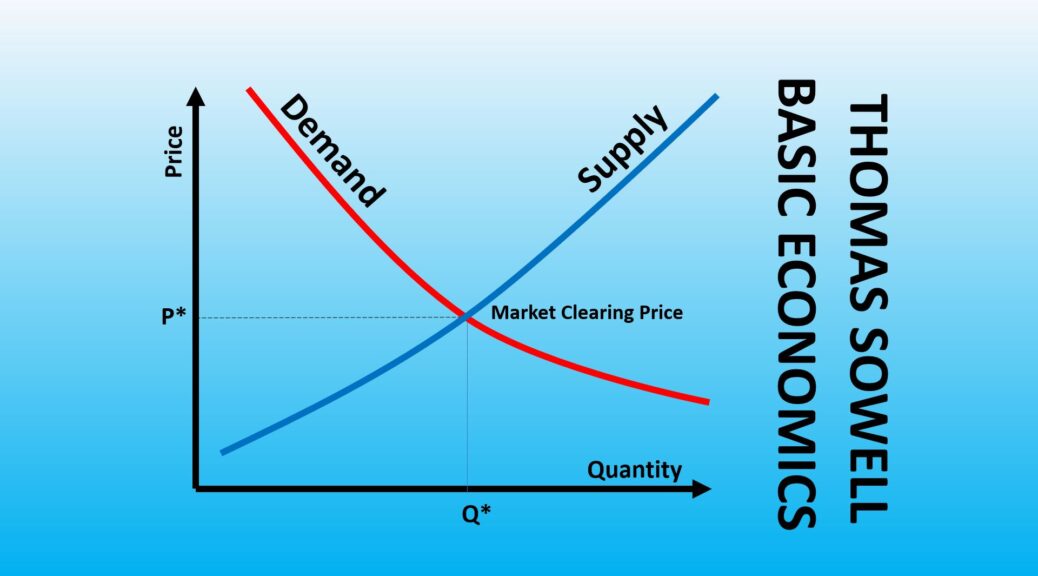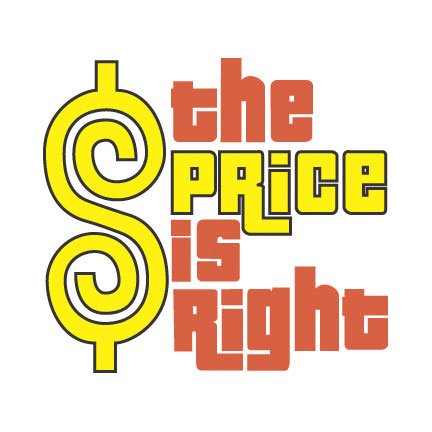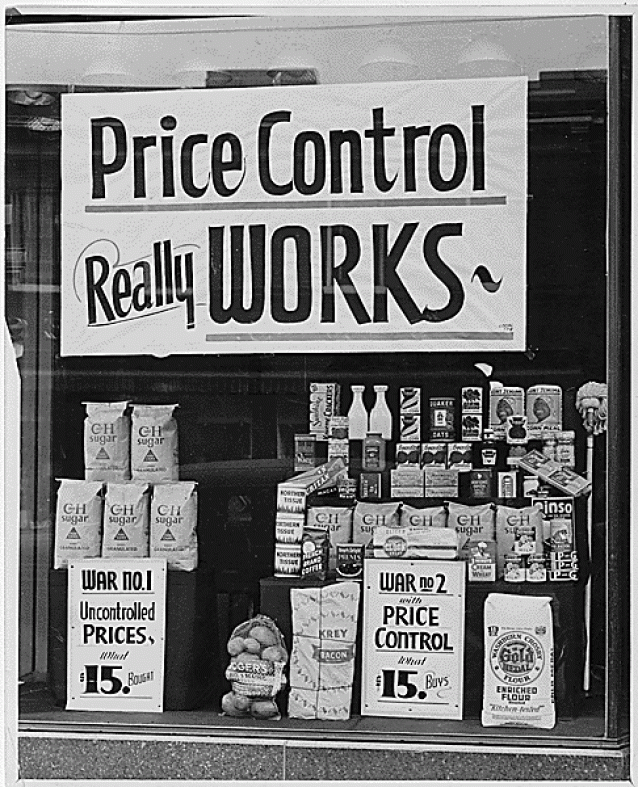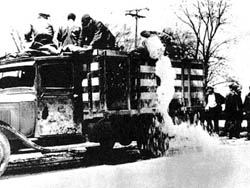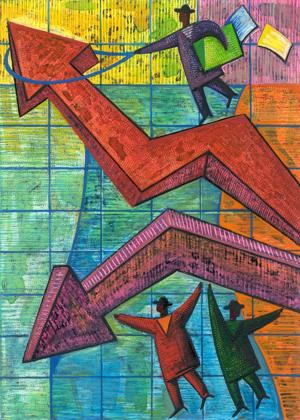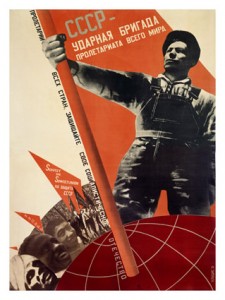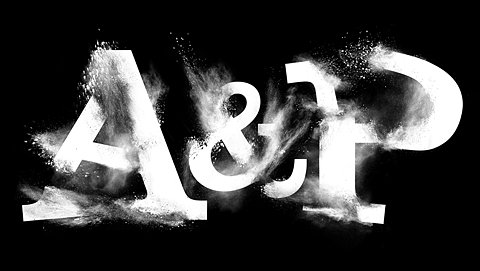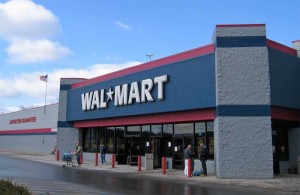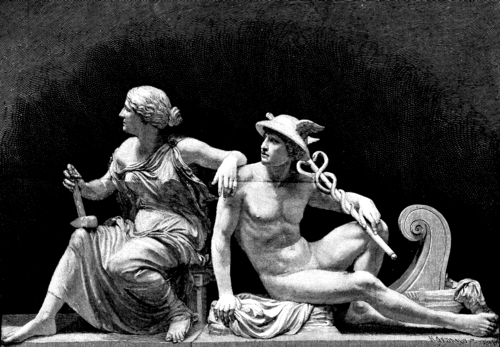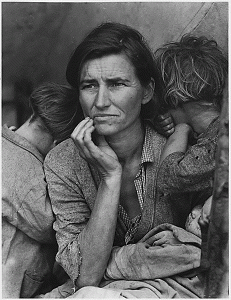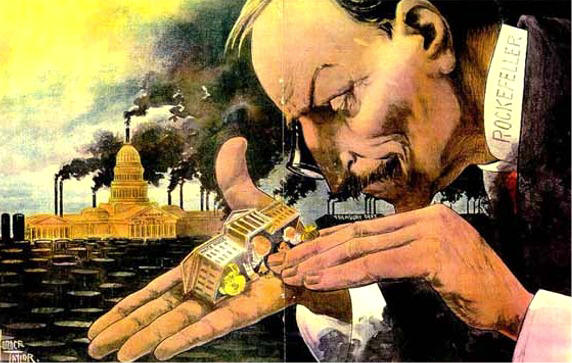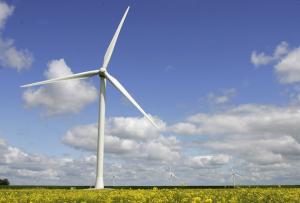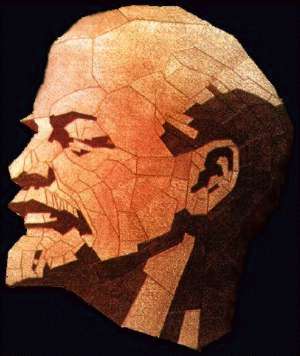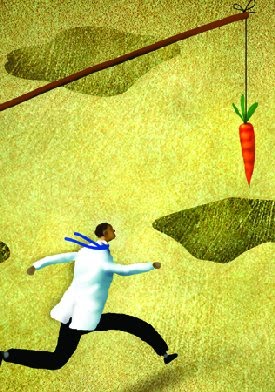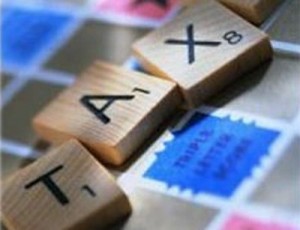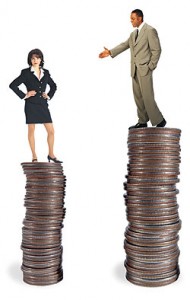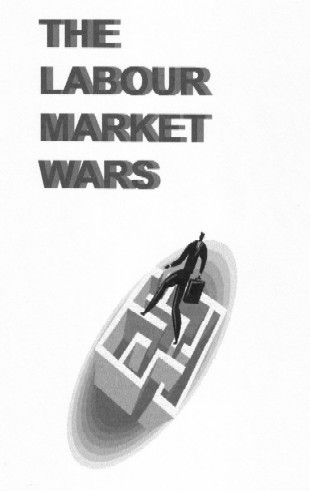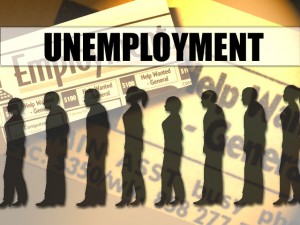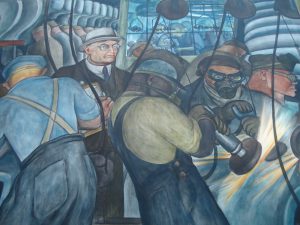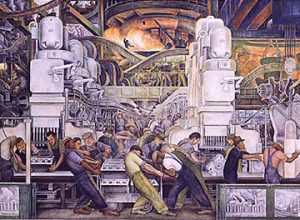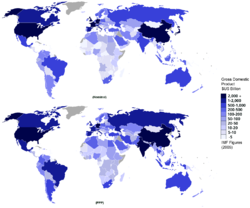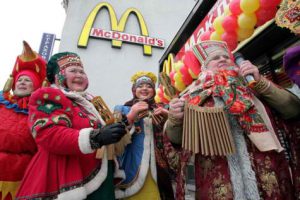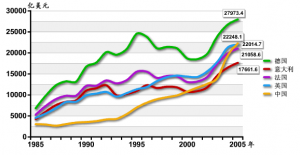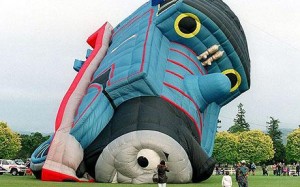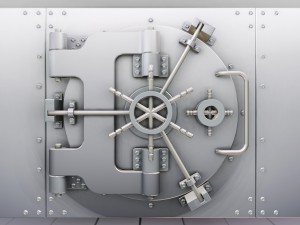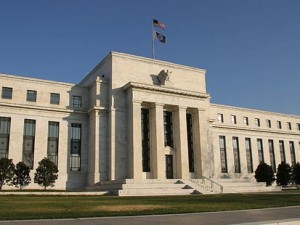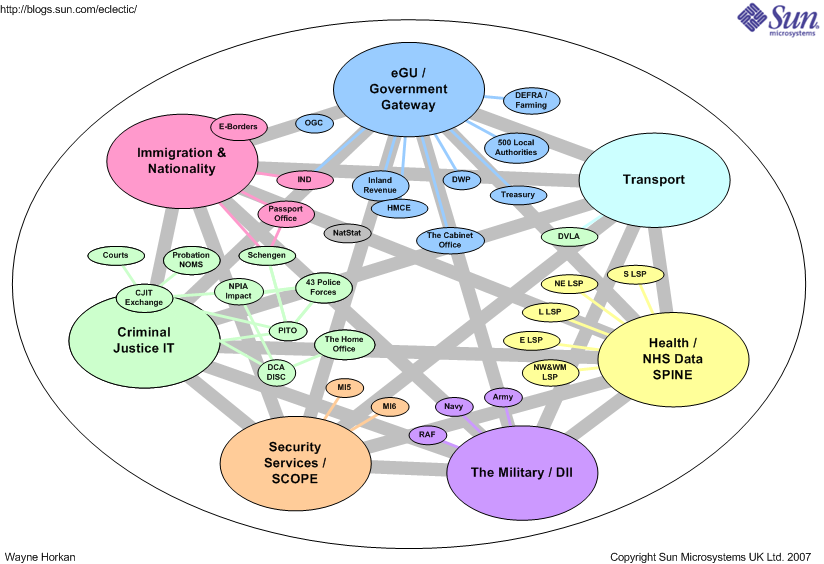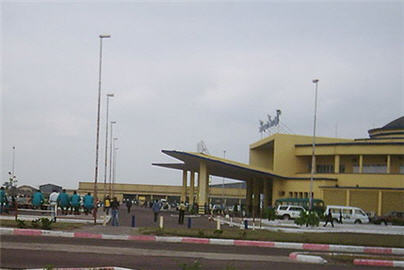Basic Economics: A Common Sense Guide to the Economy
by Thomas Sowell (conservative/laissez-faire/libertarian)
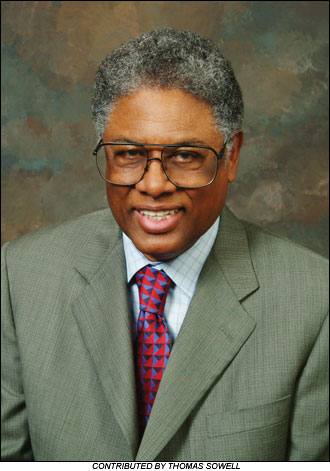
Sowell constantly tries to show the virtues of the free market. He doesn’t claim that it has a social conscious but he does claim that it has positive consequences that could be seen as an invisible social conscious.
[Please note: Thomas Sowell is informed by libertarian principles, this article is not an endorsement of his views…I am intellectually free to explore different ideas. And so too should you be free to question and learn, am I right?!]
INTRODUCTION
• What is Economics? Economics is the study of the use of scarce resources which have alternative uses. A country’s legal and political system decides how their economic system functions and effects the all-important standard of living.
• The best example is the battlefield where medical personel must choose to use their resource between alternative uses. There will always be unmet needs. Some soldiers will need immediate attention in order to recover, some will recover on their own and some are too far gone to expend any energy on.
• Scarce = Reality. Scarcity is about the constraint on an individual institutions actions. Reality prevents us from building five swimming pools beside eachother. Reality constrains us. Scarcity constrains us.
• The basic tools and principles to analyse economics are shared between Oskar Lange and Milton Friedman. This book is about those principles. Economics can explain how the reforms in India and China have lifted 20 million and 1 million per year (respectively) out of poverty.
• Money doesn’t determine the standard of living (SoL) but the amount of exchange of goods and services does. Resources aren’t as important as the GNP. That is why Japan has a high SoL (with limited resources) and Urguay has a low SoL (with large resources).
[Please note: Thomas Sowell is informed by libertarian principles: the following is a précis of “Basic Economics”]
PART I: Prices and Markets
2: The Role of Prices
Prices dictate the underlying reality; the scarcity of resources. If you wanted to live in a beach house, your dreams would be stopped by the cost/price of that house. Cost/Price is not a barrier however but a representation of the scarcity of beach houses.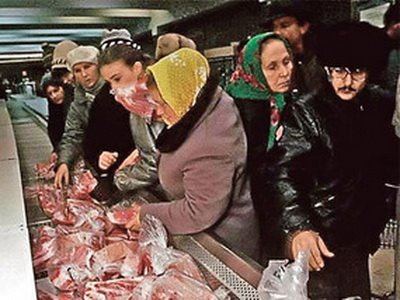
Even if government decided that beach houses was a right of every person and implemented a fixed price for the beach house, there would have to a lottery to use the beach house because of their scarcity. Rationing occurs despite government intervention. Rationining/Price/Scarcity = Reality
Thatcher said that Gorbachev did not understand free market economics because he was surprised that central planning was not used in Britain (wealthier than USSR). Prices dictate the rationing of food etc not a giant bureaucracy (Command Economy). Thatcher explains that bureaucracy can be rid of by the simple mechanism of price (Free Market Economy). If a company in Fiji finds a way to build shoes for cheaper prices then they will appear in Canada. Prices dictate how the free market functions. Prices represent needs, demand and supply. Prices convey a message about the worth of a product. We know that computer technology has improved because the prices have declined. Prices were the internet before the internet. They instantly dictated communications between individuals about how much something is worth and how much they are willing to buy it for. Like the internet, prices should not and cannot be managed by the centre. This is the demand supply interaction. Coordinated invisible hand works to help companies who are self-interested profit maximizers provide services for people.
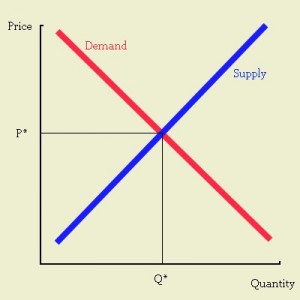 In the Command Economy of the USSR, the prices of pelts was controlled centrally. This caused havoc when pelts piled up in warehouses and began to rot. Attempts to tell the Ministry of Light Industry that they should change the price was not heeded as the MLI had to control 24 million other prices as well. It is not humanly possible to do what Free Market prices do instantly. Yeltsin’s opinions of Free Market changed when he visited the US. The Lincoln Memorial was not as interesting as an organized Grocery store. How could it all be organized without massive lineups like in Russia?
In the Command Economy of the USSR, the prices of pelts was controlled centrally. This caused havoc when pelts piled up in warehouses and began to rot. Attempts to tell the Ministry of Light Industry that they should change the price was not heeded as the MLI had to control 24 million other prices as well. It is not humanly possible to do what Free Market prices do instantly. Yeltsin’s opinions of Free Market changed when he visited the US. The Lincoln Memorial was not as interesting as an organized Grocery store. How could it all be organized without massive lineups like in Russia?
Prices help to determine how scarce milk might be. For example, the yogurt, cheese and ice cream industries all rely on milk. If demands for cheese increase then more milk is required. This drives the price of milk up influencing costs for yogurt and ice cream. These producers will buy only as much milk as will repay its higher costs.
If a product is not profitable, the capitalist business will discontinue that product. The Command Economy is allowed to continue making those mistakes indefinitely at the expense of the SoL. Resources tend to flow to their most valued uses. Therefore, the market does not get flooded with cheese as the demand decreases once the market is saturated. From a society standpoint, the cost of anything is influence by how it might be used alternatively.
Popov and Shmelev said that USSR businesses would always ask for more resources than they actually needed. This is because they didn’t know how much they were going to need in the future AND the government would not question how much was needed. This was inefficient. The cost of making 1 ton of steel in the USSR cost 1000 kilowatts where in Germany it cost 300 kilowatts in 1988. Basically, USSR businesses were not forced to economize. These resources would not have been wasted if they could be purchased by alternative users in a competitive environment. The high level officials were not experts in the value of resources in a steel factory. If resources were denied, production would suffer and heads would roll in the central planning agencies of the USSR. If you compare Germany to USSR in 1988 you are looking at a price controlled economy and political/ bureaucratic controlled economy the effect is efficiency.
Similar comparisons can be made with Ghana and the Ivory Coast. Ghana had a government run economy while the Ivory Coast with much fewer natural resources was more free market. After independence from the UK, the Ivory Coast’s economy was so strong that the SoL of its lowest 20% was higher that Ghana high income earners. This changed with a reversal of roles when a socialist regime emerged in the Ivory Coast and a free market economy emerged in Ghana. The same occurred in the case of Burma and Thailand.
India gained independence in 1947 and was economically isolated for 4 decades. Its economy didn’t grow until the 1990s when they liberalized to a more free market economy. Now India is growing incredibly fast and the SoL (standard of living) is much higher for more people. The same is the case for China which liberalized some provinces slowly starting in the 1970s (with Mao’s death in 1976) and 1980s with agriculture being sold on the market at only 10%. By 1990, China realized that the liberalized areas were growing much faster than none liberalized areas. The economic growth rate meant more people rose out of poverty.
Knowledge is one of the scarcest of all resources. The USSR realized that they couldn’t coordinate their economy because the individual knows what the value of something is when they buy it. The key is that there are incentives in the free market that dictate when to correct mistakes and inefficiencies. Losses are as important as profit. Ironically, Marx and Engels understood the role of price fluctuations but their followers didn’t. Marx was concerned with efficiency. There were economists in the USSR who understood price fluctuations were important but Stalin shot them. Political control from the top was not something Marx wanted at all, n’oublion pas!
Price regulates how much a resource will be used. People buy more when the price is lower, people buy less when the price is higher. There is never a fixed quantity demanded. There is never a fixed supply either. The quantity supplied varies directly with the price. If the price of extraction of oil is lower than the barrel cost, the oil sands in Alberta make sense. With prices as high as they are, Alberta makes sense. There are always false predictions about running out of oil but those are based on prices as they are today. When people predict a shortage of engineers in the year ahead, they usually either ignore prices or impliclty assume that there will be a shortage at today’s prices. A larger quantity of something will be supplied if there are higher prices.
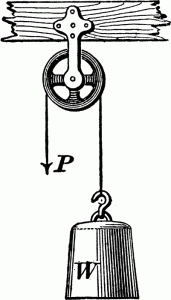 MythBuster: Prices cannot be controlled by an act of will on the part of the seller, therefore greed has nothing to do with high prices. There is the exception of cartels but that is rare. Competition will always rely on who can reduce costs of production in order to lower prices. Competition is the key to free market economics. The real value of something is fictitious. The price of something cannot be real or valid at some point and not at another.
MythBuster: Prices cannot be controlled by an act of will on the part of the seller, therefore greed has nothing to do with high prices. There is the exception of cartels but that is rare. Competition will always rely on who can reduce costs of production in order to lower prices. Competition is the key to free market economics. The real value of something is fictitious. The price of something cannot be real or valid at some point and not at another.
When crops fail an area, “greedy” suppliers will rush to sell their grain because of higher prices. Compared to people motivated by ‘public interest’ who will not make risks and travel faster to sell their grain, the greedy suppliers will prevent starvation from occurring. They are so fast that they are better than humanitarian workers, so greed is good, according to Sowell. There is unfairness as part of free market economics, for example, when saddles were no longer worth much in the 1920s. Those economic areas collapsed and rewarded other people who were fortunate to be in the markets that they were in (i.e. oil). This unfairness to individual sectors is what allows for efficiency in the broader society and large majority of people. Ultimately, as Blanchet Dubois once said “I’ve always relied on the kindness of strangers.” This is true of everyone in a free market economic system.

